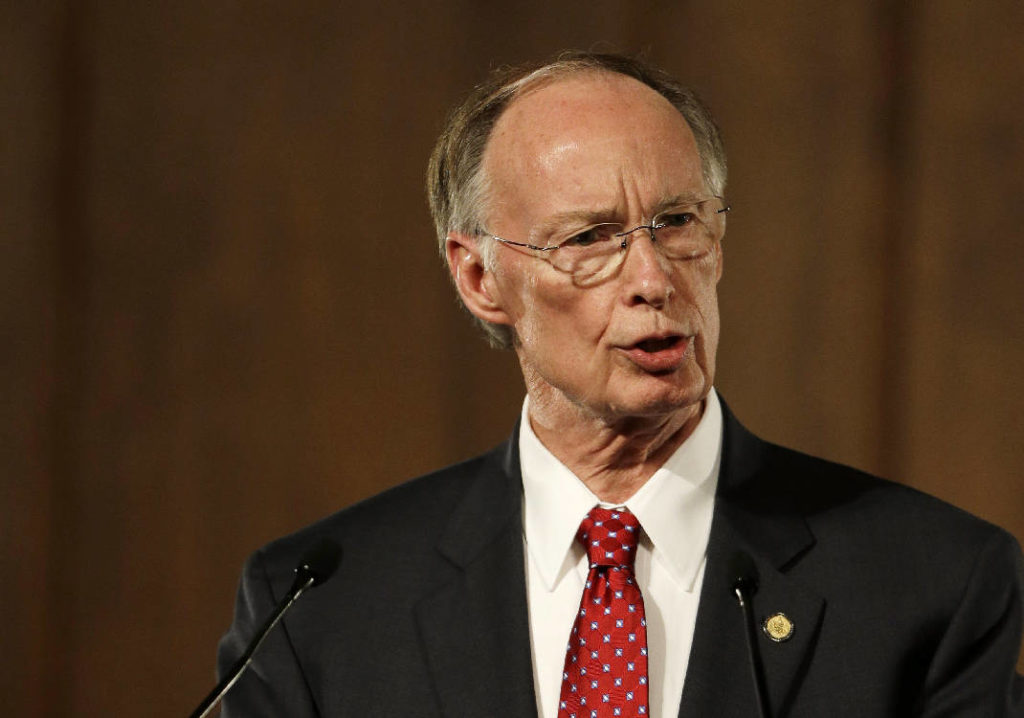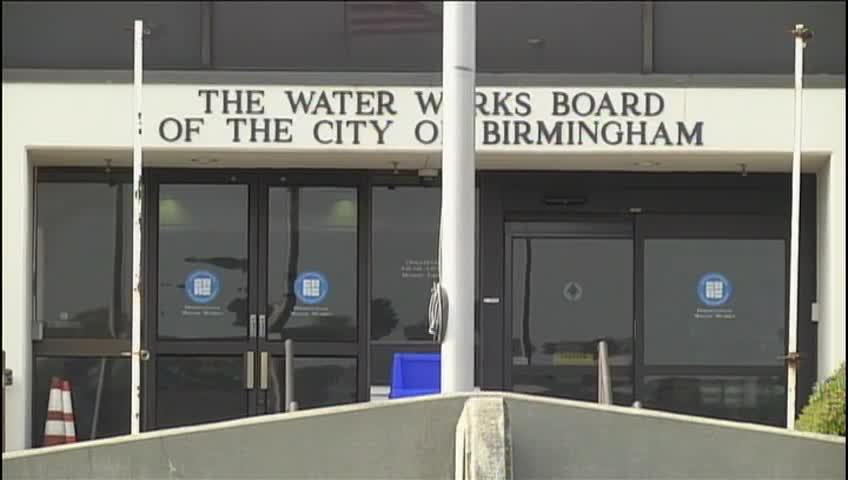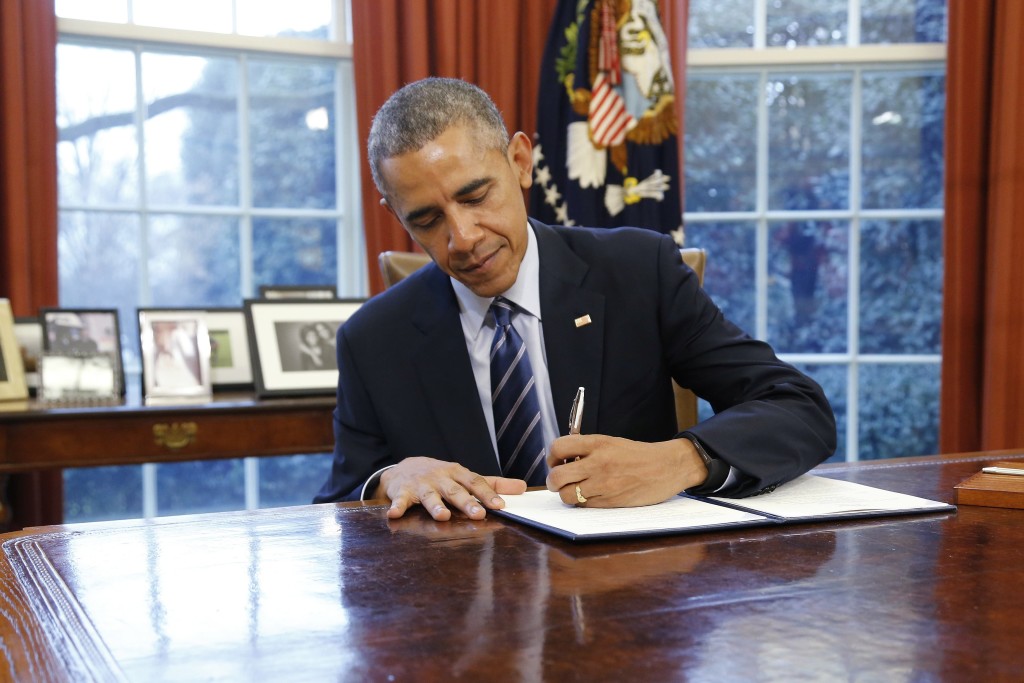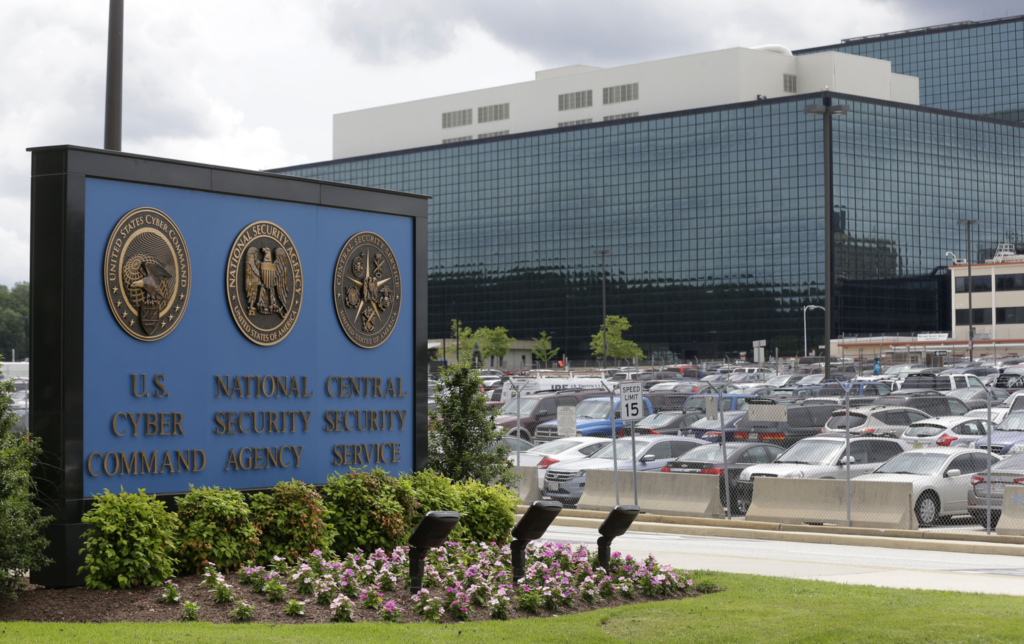Robert Bentley to interview Senate candidates to replace Jeff Sessions

Alabama Gov. Robert Bentley says he is preparing to interview potential replacements for U.S. Sen. Jeff Sessions. The governor said Tuesday that those interviews could begin as soon as this week. He said he has not decided how many candidates he will interview. President-elect Donald Trump named Sessions as his attorney general. Sessions is expected to step down once he is confirmed. Bentley will name an interim replacement to the U.S. Senate seat until an election is held to fill it for the remainder of Sessions’ term, which ends in 2020. Several high-profile Republicans have expressed interest in the appointment. Bentley has said he is looking for a conservative who will fit with Trump’s agenda. Republished with permission of the Associated Press.
Donald Trump hosts candidates for key Veterans Affairs post

President-elect Donald Trump met Tuesday met with candidates for his unfilled Cabinet positions, including prospective hires to run the Department of Veterans Affairs, a beleaguered agency that the Republican businessman has vowed to overhaul. Vice President-elect Mike Pence met with members of his incoming national security team a day after acts of violence rocked the world. At Mar-a-Lago, Trump’s palatial Florida estate, was slated to meet with Luis Quinonez, who runs a company with military and health care ties and is said to be under consideration for VA secretary. He also is set to meet with Toby Cosgrove, the CEO of the Cleveland Clinic, who was a top contender to replace Eric Shinseki when he resigned at the VA in 2014. Cosgrove later withdrew from consideration. Trump repeatedly pledged during the campaign to fix the woes at the department and said he would “take care of great veterans.” But he also came under scrutiny for being slow in paying out money raised for veterans groups and for suggesting that “strong” veterans don’t need treatment for mental health problems. Others said to be considered for the post include former Massachusetts Sen. Scott Brown, Florida Rep. Jeff Miller and Pete Hegseth, an Army veteran and former CEO of Concerned Veterans for America. Trump is also considering Jovita Carranza, who worked in President George W. Bush‘s administration, as his choice for U.S. trade representative. She served as deputy administrator of the Small Business Administration under Bush. With just a handful of Cabinet posts to fill, Trump is facing some criticism for a lack of diversity in his senior team, which currently includes no Hispanics. The National Association of Latino Elected and Appointed Officials said Tuesday that it was “deeply concerned” at the lack of Hispanics considered for top jobs. Carranza was a member of Trump’s Hispanic advisory council during the campaign. Pence, meanwhile, met in Washington with former Texas state official Susan Combs, who served both as state agriculture commissioner and comptroller. Trump also needs to fill the Agriculture Cabinet slot. Transition officials did not immediately confirm if Combs is up for that post. Earlier Tuesday, Trump was back on Twitter striking out after Bill Clinton told a suburban New York City newspaper this month that Trump “doesn’t know much. One thing he does know is how to get angry, white men to vote for him.” The Bedford-Pound Ridge Record Review also reported that Clinton claimed that Trump called him after his election victory over Hillary Clinton. “Wrong, he called me (with a very nice congratulations),” Trump tweeted. The president-elect added that Clinton is the one who “‘doesn’t know much’… especially how to get people, even with an unlimited budget, out to vote in the vital swing states (and more).” The Clinton campaign, he said, “focused on the wrong states.” Clinton later responded on Twitter, writing, “Here’s one thing @realDonaldTrump and I can agree on – I called him after the election.” The tweets come after a rattling day of violence around the world – with Trump appearing to jump ahead of investigators to blame Islamic terrorists for deadly incidents in Turkey and Germany and vowing anew to eradicate their regional and global networks. Pence met with retired Lt. Gen. Mike Flynn, the incoming National Security Adviser; retired Gen. John Kelly, Trump’s nominee for head of Homeland Security; retired Gen. James Mattis, the pick for Defense Secretary; and Rex Tillerson, the head of Exxon Mobil and the intended nominee for Secretary of State. Aides said the meeting was planned before the acts of violence, though they would be discussed. Republished with permission of The Associated Press.
Barack Obama bans future oil leases in much of Arctic, Atlantic

President Barack Obama has designated the bulk of U.S.-owned waters in the Arctic Ocean and certain areas in the Atlantic Ocean as indefinitely off limits to future oil and gas leasing. The move on Tuesday helps put some finishing touches on Obama’s environmental legacy while also testing President-elect Donald Trump‘s promise to unleash the nation’s untapped energy reserves. Environmental groups hope the ban, despite relying on executive powers, will be difficult for future presidents to reverse. The White House says Obama has used a provision in a 1953 law to ban offshore leases in the waters permanently. The Atlantic waters placed off limits are 31 canyons stretching off the coast of New England south to Virginia. Canada is also placing a moratorium on new leasing in its Arctic waters. Republished with permission of The Associated Press.
Gambling industry hopes casino mogul in White House pays off

Donald Trump will be the first U.S. president to have ever owned a casino, and the gambling industry is wondering how he will handle three major issues: internet gambling, sports betting and daily fantasy sports. The industry has sent its wish list to the president-elect. The American Gaming Association told The Associated Press it has asked Trump for fewer regulations, approval of sports betting, a crackdown on illegal gambling, tax reform and immigration policies that don’t dry up the flow of overseas gamblers – and workers – to U.S. casinos. “President Trump, his administration and Congress will unquestionably implement policies that will directly impact our industry for years to come,” Whitaker Askew, the association’s vice president, told the AP. Kirk Blalock, a lobbyist who worked for the George W. Bush administration, said Trump “comes to the table with a good, solid understanding of how the industry works and what the challenges are.” Just three states – New Jersey, Nevada and Delaware – allow internet gambling, and well-financed opponents, backed by billionaire casino magnate and Trump backer Sheldon Adelson, want to ban it nationwide. Trump and his daughter, Ivanka, formed a company in New Jersey to explore the possibility of offering internet gambling in New Jersey before the state legalized it in 2013, but never applied for a license to do it. In a brief interview in September, Trump told the AP he had not settled on a position regarding online gambling. “I have a lot of friends on both sides of this issue,” he said. His transition team did not respond to several recent requests for comment. The gaming association does not take a position on internet gambling. Sports betting is currently legal in four states: Nevada, Oregon, Delaware and Montana. And dozens of states are grappling with whether daily fantasy sports, in which players put up money to compete with each other to assemble teams of athletes who accrue points based on their real-world performances, constitutes a game of skill that does not need to be regulated, or gambling, which does. In a November 2015 interview with Fox Sports 1, Trump indicated he would not oppose sports betting or daily fantasy sports. “I’m OK with it because it’s happening anyway,” he said. Trump owned three casinos in Atlantic City, as well as one in Indiana for a time. Two of his former Atlantic City casinos, Trump Plaza and the Trump Taj Mahal, have closed. The third, Trump Marina, was sold to Texas billionaire Tilman Fertitta, who now runs it as the Golden Nugget. Steve Norton, an Indiana casino consultant who worked with Trump in the 1980s, predicted he will ultimately oppose nationwide approval of internet gambling, due in part to Adelson’s opposition, but said he does not think Trump would move to strip it from states that already offer it. “Sports betting, on the other hand is a multibillion-dollar industry, mostly illegal,” Norton said. “I believe the positives of oversight, taxing and ensuring fair odds outweigh any negatives, and hopefully Mr. Trump will support individual states rights, and help overturn” a federal ban. Norton predicted daily fantasy sports will be “a non-issue” for Trump, who will leave it to states to regulate or not. The association’s letter asks Trump to make sure Yucca Mountain in Nevada is not reconsidered as a repository for the nation’s nuclear waste because it is just 90 miles from Las Vegas. Republished with permission of The Associated Press.
Mitch McConnell rejects calls for select panel on Russian meddling

Senate Majority Leader Mitch McConnell is rejecting bipartisan calls for a special committee to investigate Russian interference in the U.S. election, which American intelligence says was aimed in part at helping Republican Donald Trump defeat Democrat Hillary Clinton. The likely meddling by Russia “is a serious issue, but it doesn’t require a select committee,” said McConnell, R-Ky. The Senate intelligence committee is able to investigate the matter, he added. CIA Director John Brennan has said the intelligence community is in agreement that Russia tried to interfere in the U.S. presidential election, although there’s no evidence Moscow succeeded in helping Trump win. “There’s no question that the Russians were messing around in our election,” McConnell told Kentucky Educational Television on Monday night. “It is a matter of genuine concern and it needs to be investigated.” Still, McConnell said the issue should be investigated in “regular order” by the Senate intelligence panel, which is “fully capable of handling this.” McConnell’s comments put him at odds with Arizona Sen. John McCain and other Republicans who have joined with incoming Senate Democratic leader Chuck Schumer in calling for a special committee to investigate efforts by Russia, China and Iran to interfere in U.S. elections. A select committee is a high-profile panel created by congressional leaders that taps lawmakers from a variety of committees to focus on a single issue, such as Watergate or the Iran-contra arms deal. McCain, chairman of the Senate Armed Services Committee, said Russian interference in the election threatens to “destroy democracy,” adding that a select committee is needed to find out exactly what Russia did and what effect it had on the election. “We need to get to the bottom of this,” McCain said. “We need to find out exactly what was done and what the implications of the attacks were, especially if they had an effect on our election.” He said: “There’s no doubt they were interfering and no doubt that it was cyberattacks. The question now is how much and what damage and what should the United States of America do? And so far, we have been totally paralyzed.” Trump has called reports of Russian hacking “ridiculous,” and his transition team dismissed the CIA assessment, saying it was the work of the same people who claimed Iraq had weapons of mass destruction before the U.S. invaded. Schumer, D-N.Y., said in a statement that the investigation must be bipartisan. “We don’t want this investigation to be political like the Benghazi investigation,” he said. “We don’t want it to just be finger pointing at one person or another.” Schumer added: “We want to find out what the Russians are doing to our political system and what other foreign governments might do to our political system. And then figure out a way to stop it.” McCain, Schumer and other senators say a select committee is needed to “reconcile contradictory information” and give the issue needed focus. In the interview with KET’s Bill Goodman, McConnell spoke of his surprise at the election’s outcome. “I thought we’d come up short” in the Senate, McConnell said. “And I didn’t think President Trump had a chance of winning.” Trump won in part because he was able to connect with rural voters in states such as Michigan, Pennsylvania and Wisconsin that had previously voted for Democrats, McConnell said. “Trump was able to convey – oddly enough a message from a billionaire who lives in Manhattan – a genuine concern for people who felt kind of left off, who felt offended by all the political correctness they see around them,” he said. Republished with permission of The Associated Press.
New unemployment debit cards coming to Alabama in 2017

Alabamians receiving unemployment benefits will soon be getting new debit cards. The Alabama Department of Labor (ADOL) said in a news release the agency is changing service providers and will be mailing out new cards in January. All recipients currently using a debit card will receive a new one. Recipients who are receiving benefits via direct deposit to a personal bank account will not be affected by this change ADOL strongly encourages unemployment recipients to ensure that the Department has a valid, current address on file and any updates are made prior to January 1. Changes may be made by calling 1-800-361-4524 or by visiting https://labor.alabama.gov/uc/ICCS/default.aspx and selecting “change personal information.”
Terri Sewell urges alternative credit score consideration by GSEs

Home ownership is an integral part of the American Dream, but buying a home is a stressful process. Perhaps one of the most stressful components — securing a good, home loan. For millions of Americans the task of being approved for a home loan is daunting, as they know the fate of their future home hinges on one main factor: their FICO credit scores. Which is why, last December, Alabama 7th District U.S. Rep. Terri Sewell and her colleague Ed Royce from California’s 39th District introduced a bill urging the government-sponsored enterprise (GSEs) Fannie Mae and Freddie Mac — which control 90% of the mortgage market and set the underwriting standards for the entire mortgage industry — to consider alternative credit-scoring models beyond the FICO credit score. The bill, H.R. 4211: the Credit Score Competition Act of 2015 aims to abandon FICO for a softer standard in evaluating credit risk making home ownership a greater possibility for more Americans. Last week, the Federal Housing Finance Agency (FHFA) released their 2017 Scorecard and seemed to take heed of Sewell’s and Royce’s bill including stating that the FHFA expects the GSEs to: “Conclude assessment of updated credit score models for underwriting, pricing, and investor disclosures, and, as appropriate, plan for implementation.” Sewell and Royce say the change of policy is a win-win. “Alternative credit score consideration by the GSEs is a win-win: it opens up the market to those looking to buy a home in a responsible manner and fosters healthy competition in the credit scoring field,” said both Reps in a joint press release. “That’s why there is strong bipartisan support in Congress for such a move. We encourage the FHFA to move forward without further delay.” In Royce and Sewell’s view, lower-to-middle income Americans who are qualified to buy a home, but are unable to do so because of their current FICO score or often lack thereof will “specifically benefit from the GSEs using other credit scoring models.”
Michelle Obama tells Oprah Winfrey that 2016 election ‘was painful’

First lady Michelle Obama tells Oprah Winfrey that this past election was “painful.” Mrs. Obama sat down with Winfrey at the White House for an hourlong special that was broadcast Monday on CBS. On the topic of the recent campaign she said: “This past election was challenging for me as a citizen to watch and experience. It was painful.” Still, Mrs. Obama says she and the president are supporting President-elect Donald Trump‘s transition because “it is important for the health of this nation that we support the commander-in-chief.” She says the same thing wasn’t done for her husband, but that “this is what’s best for the country.” As for her own political future, Mrs. Obama says she won’t run for public office. Republished with permission of The Associated Press.
Judge approves expansion of Birmingham Water Works Board

If you’re a Birmingham Water Works customer, you may be welcoming a judge’s decision that assures a new law will go into effect next month, putting more checks on how the Water Works Board spends your money and more voices on that board. On Monday, a judge ruled against the Water Works Board’s attempt to stop this law. For ratepayers this means there will be more eyes on how your money is spent. After years of fighting, this decision means three more members will join the Water Works Board in January. Blount County, Jefferson and Shelby counties will all appoint one person to the board starting Jan. 1. Shelby County should pick their person within the next two weeks. The former Mayor of Irondale, Tommy Joe Alexander, will represent Jefferson County and Attorney Brett King will represent Blount County. Former Alabama State Representative Paul DeMarco says he and several others worked on this legislation because they questioned how the board was spending rate payer’s money. “This Water Board, the pay was out of bounds. The travel expenses were out of bounds for a board that should be putting the rate payers first,” DeMarco said. DeMarco also spoke about rate increases saying, “That’s been a problem. Rate payers get their bills and rates keep going up and up and up and we needed to have some folks really look at how the water board spends its dollars.” DeMarco says that the water board spent thousands of dollars in legal fees trying to stop this legislation, but ultimately the judge sided with the ratepayers. “The judge ruled in favor with those that have to suffer monthly from increased water board rates when the water board spends thousands of dollars on all kinds of issues and all kind of expenses, and there have been questions about how this board operates. So hopefully we have some reform in place that will bring some common sense into this Birmingham Water Works Board,” DeMarco continued. Republished with permission of The Associated Press.
Cities, counties plan immigrant legal aid after Donald Trump’s win

Major U.S. cities and counties are beefing up legal services for immigrants to help them fight deportation and avoid fraudulent lawyers in the wake of Donald Trump‘s election and his hard-line immigration enforcement promises. Tapping local government funds to represent immigrants in federal proceedings provides an early example of the type of pushback the Republican incoming president will receive in Democratic strongholds. Advocates call it a matter of justice and smart economics, but some question whether it’s a fair use of taxpayer money. Chicago has approved a $1.3 million legal fund. Los Angeles elected officials said Monday they are working with private foundations to set up a $10 million fund, while some California state lawmakers have proposed spending tens of millions of dollars to provide lawyers to immigrants facing deportation. New York is mulling a public-private legal fund, building on New York City’s public defender program that’s considered a national model. “We need to be able to stand by people who are fearful,” Chicago Mayor Rahm Emanuel, a former White House chief of staff, said after the measure passed the City Council last week. Trump’s pledges to build a border wall and deport the estimated 11 million people living in the country without legal permission have triggered uncertainty in immigrant circles. He has since scaled back the deportee number, but not detailed his platform. Since his win, a lack of legal representation for immigrants has become a growing concern. It was the top issue raised by a Chicago task force of leaders, including Democratic Sen. Dick Durbin, convened after the election. Los Angeles County supervisor Hilda Solis said she’s especially worried about the fate of unaccompanied minors and young immigrants who filed personal information with the federal government to obtain work permits under the Obama administration. In Los Angeles, officials want the fund set up before Trump becomes president in January. About half the money will come from the city and county and half from private donations. “We don’t know how far the new administration will go when it comes to our nation’s immigration policy, but we’ve all heard the rhetoric, the dangerous rhetoric of the election,” said Los Angeles Mayor Eric Garcetti. “And we are ready to support people who can’t afford or who don’t realize they might need a lawyer.” Immigrants aren’t guaranteed a lawyer in immigration court and only about 37 percent of those in deportation proceedings have legal representation, according to a September American Immigration Council report. Democratic state lawmakers in California have proposed legislation that could cost up to $80 million for immigration attorneys and other legal training. Santa Clara County is looking into the idea and San Francisco Mayor Ed Lee added $1.5 million to a fund for immigrant legal services. In Chicago – where an estimated 150,000 people do not have permanent legal status – the money will be divided among two nonprofits. One will focus on poor immigrants facing deportation. The other will employ 200 “community navigators” who will network through churches, schools and community events to find immigrants who are in the country illegally and help them figure out if they have avenues to stay. “People are nervous,” said Esperanza Villalobos, who already does the job in Mexican-heavy Chicago neighborhoods. She reports a surge in immigrants seeking her out since the election. In Chicago, which has some of the most immigrant-friendly laws in the nation, the debate over the fund had tense moments, highlighting how contentious the issue is outside Democratic strongholds. Chicago set aside money only for one year and is banking on private donations to keep it going. Three aldermen representing neighborhoods with strong Trump support voted against it, including Nicholas Sposato. He dismissed it as “the legal defense fund for the illegals” and said Chicago should consider the money for other issues. The cash-strapped city diverted the funds from a little-used homeowner rebate program. “I’m not a hater,” Sposato said during the vote at full the council meeting. “Any given day, 1,000 homeless veterans out there. What are we doing for them?” Another reason cited by local governments for creating the funds is the economy, because immigrants, regardless of legal status, work and pay taxes. In addition, children of immigrants who are deported may end up needing publicly-funded services such as foster care and health care, said Avideh Moussavian, a policy attorney with the National Immigration Law Center in Washington. “There’s the due process issue, but there’s actually quantifiable economic impact,” she said. In 2013, New York City tested a program to infuse public defender offices with money for attorneys dedicated to representing detained immigrants. The program has grown from $500,000 in its initial year to roughly $6 million. Attorneys have represented more than 1,500 immigrants from 2013 through late last year, the most recent statistics available. About 70 percent of attorneys won their cases, according to the nonprofit Vera Institute of Justice. In Chicago, another goal is to help immigrants avoid fraudulent services, something 24-year-old Jose Lopez knows firsthand. The college student, brought to the country illegally as a child, qualified for a work permit under the Obama administration. Twice he sought out attorneys who advertised on Spanish-language radio stations. However, the paperwork they filed was unnecessary, his case stalled and he lost nearly $2,000. He’s since obtained the permit and has a graphic design job, but hopes others can avoid his mistakes. “I had to stall a career. I had to stall school,” he said. “I had to stall life.” Republished with permission of The Associated Press.
Barack Obama pardons 78, shortens the sentence for 153

President Barack Obama has pardoned 78 people and shortened the sentence of 153 others convicted of federal crimes, the greatest number of individual clemencies in a single day by any president, the White House said Monday. Obama has been granting commutations at rapid-fire pace in his final months in office, but he has focused primarily on shortening sentences of those convicted of drug offenses rather than giving pardons. A pardon amounts to forgiveness of a crime that removes restrictions on the right to vote, hold state or local office, or sit on a jury. The pardon also lessens the stigma arising from the conviction. The pardons issued Monday were for a wide range of offenses, such as possession of counterfeit currency, felon in possession of a firearm and involuntary manslaughter. One Tennessee man was pardoned after being dismissed from the military in 1990 for conduct unbecoming an officer (shoplifting.) Neil Eggleston, Obama’s White House counsel, said Obama has now pardoned a total of 148 people during his presidency. He has also shortened the sentences of 1,176 people, including 395 serving life sentences. Eggleston said each clemency recipient’s story is unique, but a common thread of rehabilitation underlies all of them. Pardon recipients have shown they have led a productive and law-abiding post-conviction life, including by contributing to the community in a meaningful way, he said. Commutation recipients have made the most of his or her time in prison by participating in educational courses, vocational training, and drug treatment, he said. Not all of those receiving commutations will be set free right away. Some will see their sentences end in 2017 or 2018 – long after Obama leaves office – and in some cases on the condition they participate in drug treatment programs. “These are the stories that demonstrate the successes that can be achieved by both individuals and society in a nation of second chances,” Eggleston said. The commutations were announced as Obama vacations in Hawaii during the holidays. Obama leaves office falling short in efforts to overhaul the nation’s criminal justice system. Congress could not reach agreement on legislation that would lead to shorter sentences for some. Pointing to a prison population that has increase from 500,000 in 1980 to about 2.2 million today, the administration had argued that thousands of people were serving sentences disproportionate to their crimes and that the financial toll of incarcerating them increased financial strains for the government. Eggleston said he expects Obama to issue more commutations and pardons before he leaves office. He called clemency a tool of last resort and said “only Congress can achieve the broader reforms needed to ensure over the long run that our criminal justice system operates more fairly and effectively.” The pace of commutations generated criticism on the campaign trail earlier this year with President-elect Donald Trump warning voters that their safety could be at risk because of Obama’s move to set prisoners free ahead of schedule. “Some of these people are bad dudes,” Trump said in October after another batch of Obama commutations. The Drug Policy Alliance, which has supported Obama’s efforts, said it was worried going into the next administration. “We need the president to pick up the pace of commutations before he leaves office,” said Michael Collins, a deputy director at the alliance. Republished with permission of The Associated Press.
NSA watchdog on leave in whistleblower case

Allegations of retaliation against a whistleblower at the National Security Agency have left its top watchdog fighting for his job, according to an intelligence official and another individual familiar with the case. The case could offer some credence to Edward Snowden‘s claim that he could not have reported the government’s domestic surveillance program without facing reprisals. George Ellard, the NSA’s inspector general, was placed on administrative leave after he refused to give the whistleblower a certain job assignment. The Project on Government Oversight, an advocacy group, first reported last week that Adm. Mike Rogers, director of NSA, had placed Ellard on leave and recommended that he be terminated. Ellard is appealing that decision. Ellard received attention in 2014 for remarks at Georgetown University Law Center criticizing Snowden, the former NSA contractor who had leaked secret documents about the surveillance program. Snowden says he went public because he feared retaliation from his superiors if he had raised his concerns with them. Ellard said at Georgetown that Snowden could have safely come to him. Ellard’s case is the first to move completely through a process created by President Barack Obama in 2012 to ensure that intelligence employees can effectively report waste, fraud and abuse while protecting classified information. The directive prohibits agencies from retaliating against them or taking away security clearances or an employee’s access to classified information. The case stemmed from a whistleblower’s claims of financial misconduct by NSA officials involving a conference in Nashville, Tennessee. The whistleblower, in a brief email to The Associated Press, said that after he raised his concerns, his name was disclosed to Ellard in violation of rules intended to protect government employees who want to report misconduct. The whistleblower said his email response had been cleared by the NSA. The agency declined to comment independently on the case. Ellard’s attorney did not respond to requests for comment. It’s not clear who revealed the whistleblower’s identity to Ellard. But the whistleblower said that after Ellard learned who he was, “I was denied an assignment within the NSA inspector general’s office of investigations because of my whistleblowing.” He sent the email to the AP on condition of anonymity because the case is still active. Rogers’ decision to recommend Ellard’s dismissal followed an eight-month investigation by a panel of inspectors general at the CIA, Treasury and Justice Department, according to an intelligence official, who was not authorized to disclose details about the case and spoke on condition of anonymity. The trio was empaneled in October 2015 and issued its decision in May. The Justice and Defense departments declined to comment on the decision. Louis Clark, director of the Government Accountability Project, said he was happy that the process set up by Obama’s directive was finally being used, but expressed disappointment that it has taken so long for it to happen. “It was so slow because the intelligence agencies are extremely hostile to whistleblowing,” he said. The fate of Obama’s directive is uncertain. It will be up to Donald Trump, after he becomes president, to decide whether to continue it. Trump has said he doesn’t trust the intelligence agencies, but it’s not clear if that would make him more or less likely to protect whistleblowers. Timothy Edgar, Obama’s first director of privacy and civil liberties for the White House national security staff, says there is cause for serious concern about the future of whistleblowers. “What we’re left with, I think, is probably primarily the integrity and bravery of people in the bureaucracy, who, despite those obstacles are willing to say ‘no’ if they are involved in activities that they think are serious violations of the Constitution,” Edgar said. Republished with permission of The Associated Press.


